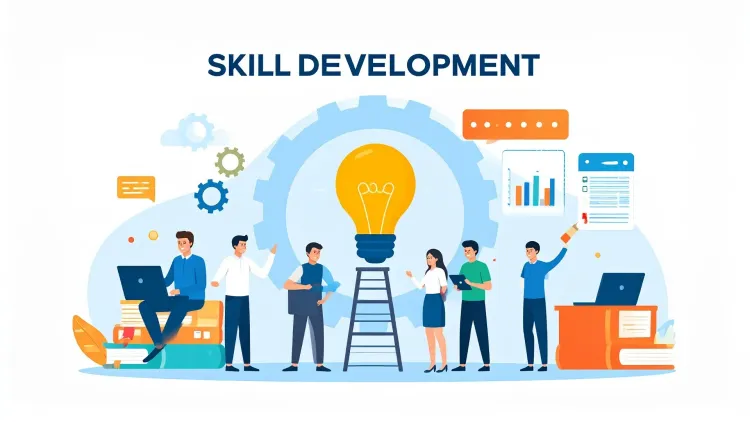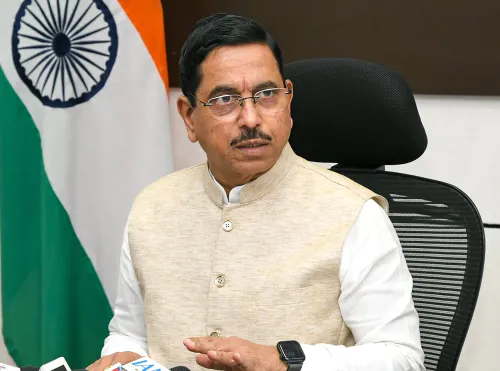Are Over 60% of Indian Companies Launching Skilling Programs to Shape the Future Workforce?

Synopsis
Key Takeaways
- Over 60% of Indian companies are launching skilling initiatives.
- 61% of firms have implemented skills-based programs.
- Talent attraction and retention are a top priority.
- Challenges include budget constraints and measuring effectiveness.
- Leadership support is strong, aiding skills development.
New Delhi, July 2 (NationPress) Over 60% of organizations in India are launching skilling initiatives aimed at molding the country's future workforce, as revealed in a report released on Wednesday.
This report by Aon, a global professional services firm, analyzed how companies are integrating skills into their strategic planning.
It highlighted that attracting and retaining talent, cultivating a robust leadership pipeline, and ensuring workforce agility and resilience are the primary talent objectives for Indian companies over the next two to three years.
To meet these goals, 61% of Indian businesses have adopted skills-focused initiatives, according to the report.
The insights reflect the escalating pressure on Indian firms to stay competitive amidst rapid transformations, workforce turnover, and shifting skill requirements.
Although preparing for GenAI disruptions and prioritizing employee well-being received lower rankings, they are expected to gain importance in the future.
The report, which gathered feedback from over 135 organizations in the APAC region, including India, found that 57% of Indian respondents view skills as critical to business success, one of the highest percentages in APAC.
“In an increasingly dynamic environment, there is a pressing need for relevant, future-ready skills rather than just traditional work experiences to create a resilient and agile workforce,” stated Puneet Swani, head of Talent Solutions for APAC at Aon.
“Organizations should prioritize skills development and utilize people analytics to enhance both HR and business results. This approach can help cultivate a resilient and adaptable workforce prepared to tackle future challenges,” Swani elaborated.
The report also identified key challenges such as pinpointing relevant skills, budget limitations, evaluating program effectiveness, and constraints related to employee engagement and training time.
Importantly, the lack of leadership support was not identified as a significant obstacle in India, indicating robust top-down commitment to skills development.
Moreover, despite India's vast talent pool and technological capabilities, the country is lagging in the skills maturity journey compared to Australia and Malaysia.
“This may be attributed to a lower perceived urgency due to the abundance of available workforce,” the report concluded.









